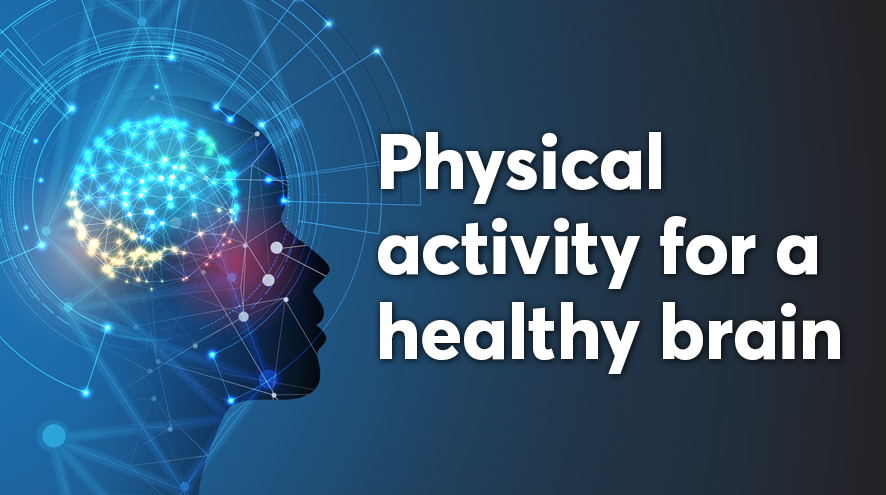Physical activity for a healthy brain
On this page, you’ll find tips on how to make physical activity a regular part of your routine, with ideas for activities, and links to resources to help you get started.

Physical activity for a healthy brain
Keeping active is one of the most beneficial ways to support both your body and brain health. Studies have shown that regular physical activity is associated with a lower risk of dementia, supporting memory and mental clarity, while reducing risk factors such as high blood pressure and diabetes.
Why physical activity matters for brain health:
Engaging in physical activity positively impacts brain health by:
- Increasing blood flow: Cardiovascular activities like walking, cycling, or swimming pump oxygen-rich blood to the brain, supporting brain function.
- Improving cognitive health: Regular exercise helps reduce risk factors associated with dementia, including high blood pressure and cholesterol, by over 50%.
- Reducing stress: Physical activity boosts mood, lowers stress, and can help prevent symptoms of depression and anxiety, which, over time, can negatively affect brain health.
Tips for staying active:
Here are a few ways to make physical activity part of your daily life while keeping it enjoyable and accessible:
- Start where you can: Small changes add up! Start by adding short walks, gentle stretching, or light gardening to your routine. Every step counts toward supporting your brain health.
- Make it social: Combine physical activity with social interaction to gain extra benefits for your brain. Join a group class, take a walk with a friend, or try an activity that’s fun and engaging, like dance or yoga.
- Challenge yourself with new activities: Trying something new not only benefits your body but also challenges your brain. Consider activities like tai chi for balance, hiking for aerobic benefits, or swimming for low-impact exercise that is kind to your joints.
Recommended activities to improve brain health:
- Aerobic exercises: Activities like walking, cycling, and dancing help increase heart rate, supporting circulation and cognitive function.
- Balance and strength exercises: Yoga, tai chi, and light weightlifting support balance, reduce fall risk, and maintain coordination.
- Mind-engaging physical activities: Group sports, dance, and other mentally stimulating physical activities promote brain health by involving both body and mind.
Resources to get you moving:
Get started with resources and tools to support your physical activity journey:
- Being active - Public Health Agency of Canada: A guide for Canadians to stay active, healthy, and prevent disease.
- Dementia-inclusive physical activity – DICE project: Resources designed for people living with dementia and their families, offering support and confidence-building tools for exercise.
- SAFE: Senior Adult Fitness Exercises: Free exercise videos from McGill University Health Centre that are safe and accessible for older adults.
- Minds in Motion®: A community program that includes physical and mental stimulation for people with early to mid-stage Alzheimer’s disease or other forms of dementia and their care partners.
- Community programs: Check local programs, such as walking groups or fitness classes, to find activities that fit your needs and interests.
Webinar: Brain Health, January 26, 2026
Goals of this presentation include understanding the risk factors associated with developing dementia, recognizing how lifestyle plays a role in your risk of developing dementia, and taking action to support brain health.
Date: January 26, 2026, at 11:00am-12:00pm (Eastern Time)
Intended audience: General Public, Care Partners, Health Care Providers
Click here to register.
